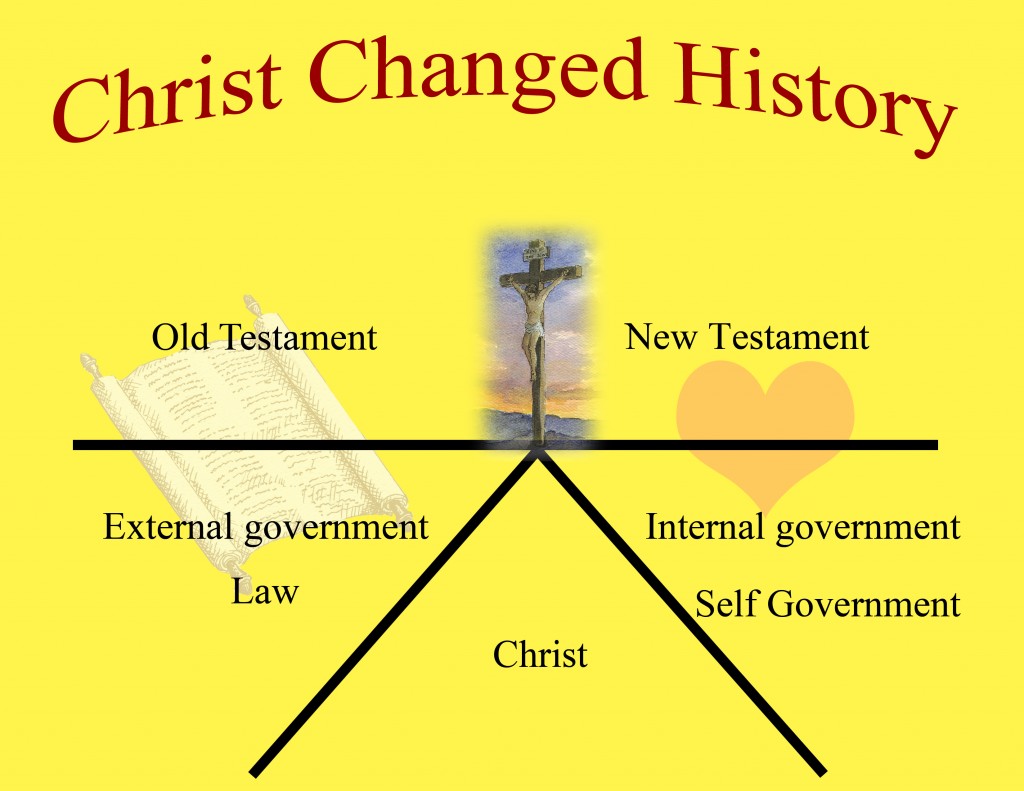Christianity Turned the World Upside Down – Part 2
by Ruth Smith

Acts 17:6 refers to These that have turned the world upside down . . .
In Part 1, we considered the effect of Christianity to, first, change the heart of the individual and then change the individual’s life. With Christ living internally in the individual’s heart, the individual learned that he could govern his own actions. This self-governing individual had internal liberty.
As the Bible was in the hands of the people, they soon recognized that this liberty could be extended from the individual into the sphere of the church. William Bradford wrote in his history:
As they [the Separatists] saw “further into things by the light of the word of God . . . they shook off this yoke of antichristian bondage, and as the Lords free people, joined themselves (By a covenant of the Lord) into a church estate, in the fellowship of the gospel . . .”[1]
These Christians separated from the state church, the yoke of antichristian bondage, and established self-governing churches. They realized that the same Biblical principles which governed their individual actions could be extended into the church.
The principle of self government was not limited to the individual and the church. When the small band of Pilgrims arrived on the shores of Cape Cod (outside the bounds of the patent given them for a settlement), they applied the same Biblical principle of self government to the civil sphere. They established and voluntarily agreed to their own civil government. This was the first historic instance of individuals practicing local self government in the civil sphere.
Christ and Christianity were the cause for this change. Christ’s coming brought to the world the ability to govern oneself according to the Scriptures. He fulfilled the law, thereby “turning the world upside down” governmentally. Man no longer needed only to be governed externally, but could, through Christ, have internal self government. This changed the world.
Civil government could be limited in relation to the practice of self government in the lives of its people. If the individual governed his own actions, he would require less and less civil government. However if the individual did not govern his own actions, he became more and more dependent upon external, civil government.
All history points to Christ’s coming and the change He brought to the world governmentally. Christ is truly the focal point of history.
[1] William Bradford, Of Plimoth Plantation, in The Christian of the Constitution of the United States of America: Christian Self-Government (San Francisco: Foundation for American Christian Education, 1966), page 185.